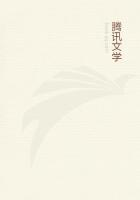V. But there is a Book of two parts, each part consisting of several books. The first part (I speak in the character of an uninterested critic or philologist) contains the relics of the literature of the Hebrew people, while the Hebrew was still the living language. The second part comprises the writings, and, with one or two inconsiderable and doubtful exceptions, all the writings of the followers of Christ within the space of ninety years from the date of the Resurrection. I do not myself think that any of these writings were composed as late as A.D. 120; but I wish to preclude all dispute. This Book I resume as read, and yet unread--read and familiar to my mind in all parts, but which is yet to be perused as a whole, or rather a work, cujus particulas et sententiolas omnes et singulas recogniturus sum, but the component integers of which, and their conspiration, I have yet to study. I take up this work with the purpose to read it for the first time as I should read any other work, as far at least as I can or dare. For I neither can, nor dare, throw off a strong and awful prepossession in its favour--certain as I am that a large part of the light and life, in and by which I see, love, and embrace the truths and the strengths co-organised into a living body of faith and knowledge in the four preceding classes, has been directly or indirectly derived to me from this sacred volume--and unable to determine what I do not owe to its influences. But even on this account, and because it has these inalienable claims on my reverence and gratitude, I will not leave it in the power of unbelievers to say that the Bible is for me only what the Koran is for the deaf Turk, and the Vedas for the feeble and acquiescent Hindoo. No; I will retire UP INTO THE MOUNTAIN, and hold secret commune with my Bible above the contagious blastments of prejudice, and the fog-blight of selfish superstition. FOR FEAR HATH TORMENT.
And what though MY reason be to the power and splendour of the Scriptures but as the reflected and secondary shine of the moon compared with the solar radiance; yet the sun endures the occasional co-presence of the unsteady orb, and leaving it visible seems to sanction the comparison. There is a Light higher than all, even THE WORD THAT WAS IN THE BEGINNING; the Light, of which light itself is but the shechinah and cloudy tabernacle; the Word that is Light for every man, and life for as many as give heed to it. If between this Word and the written letter I shall anywhere seem to myself to find a discrepance, I will not conclude that such there actually is, nor on the other hand will I fall under the condemnation of them that would LIE FOR GOD, but seek as I may, be thankful for what I have--and wait.
With such purposes, with such feelings, have I perused the books of the Old and New Testaments, each book as a whole, and also as an integral part. And need I say that I have met everywhere more or less copious sources of truth, and power, and purifying impulses, that I have found words for my inmost thoughts, songs for my joy, utterances for my hidden griefs, and pleadings for my shame and my feebleness? In short, whatever FINDS me, bears witness for itself that it has proceeded from a Holy Spirit, even from the same Spirit, WHICH REMAINING IN ITSELF, YET REGENERATETH ALL OTHER POWERS, AND IN ALL AGES ENTERING INTO HOLY SOULS, MAKETH THEM FRIENDS OF GOD, AND PROPHETS. (Wisd. vii.) And here, perhaps, I might have been content to rest, if I had not learned that, as a Christian, I cannot, must not, stand alone; or if I had not known that more than this was holden and required by the Fathers of the Reformation, and by the Churches collectively, since the Council of Nice at latest, the only exceptions being that doubtful one of the corrupt Romish Church implied, though not avowed, in its equalisation of the Apocryphal Books with those of the Hebrew Canon, and the irrelevant one of the few and obscure sects who acknowledge no historical Christianity.
This somewhat more, in which Jerome, Augustine, Luther, and Hooker were of one and the same judgment, and less than which not one of them would have tolerated--would it fall within the scope of my present doubts and objections? I hope it would not. Let only their general expressions be interpreted by their treatment of the Scriptures in detail, and I dare confidently trust that it would not.
For I can no more reconcile the doctrine which startles my belief with the practice and particular declarations of these great men, than with the convictions of my own understanding and conscience. At all events--and I cannot too early or too earnestly guard against any misapprehension of my meaning and purpose--let it be distinctly understood that my arguments and objections apply exclusively to the following doctrine or dogma. To the opinions which individual divines have advanced in lieu of this doctrine, my only objection, as far as I object, is--that I do not understand them. The precise enunciation of this doctrine I defer to the commencement of the next Letter. Farewell.
LETTER II.















